LEARN / ARTICLE
Air Quality at Beleaf Farms 8x Cleaner After Becoming a Clean Air Zone
CAZ Stories is a series of articles highlighting the significant impact of Clean Air Zones in diagnosing and mitigating indoor air quality issues for businesses in Indonesia. For more information, read our previous CAZ Stories:
- AC Ventures
- Mighty Minds Preschool
- Global Shipping Company
- Mazars Indonesia
- IShine Kelapa Gading
- YCAB Foundation
- New Zealand School
- Kinderfun Preschool
- HEI Schools
- Green Montessori School
- Neuro Care by Klinik Pintar
- Champ Camp
- Hill & Knowlton Strategies Indonesia
- ISMILE Preschool Permata Hijau
- Islamic Village School
Air pollution is a problem affecting communities in many countries, including Indonesia. Particularly in cities with high pollution levels like Jakarta, where the average pollution level in 2023 reached 38 µg/m3. This condition is unsafe for residents as the pollution far exceeds the National Ambient Air Quality Standard (NAAQS) of 15 µg/m3 annually. It's also nearly 8 times higher than the WHO's annual guideline.
WHO designates PM2.5 as a dangerous pollutant due to its extremely small size, making it easily inhalable into our lungs. PM2.5 poses a threat to the general population, but its risks are even more pronounced for sensitive groups, including children under five and adults over sixty.
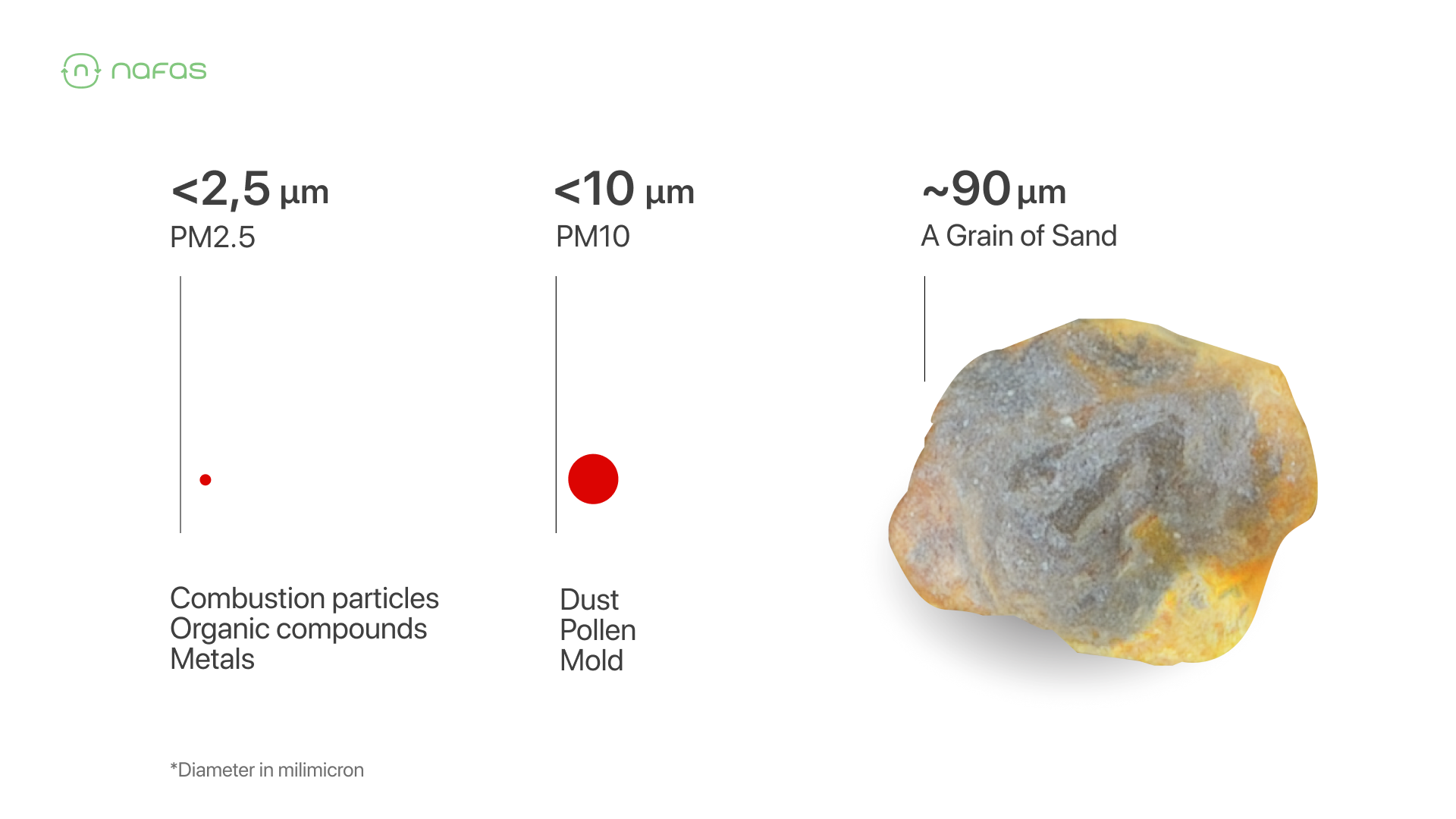
Based on tests conducted by the Nafas team in the field, the leakage rate of outdoor air pollution into indoor spaces can reach 100%. This is concerning, especially for communities living in polluted cities like Jakarta.
Some time ago, Nafas released an article titled "Our Buildings Make Us Sick" highlighting the fact that air pollution is not just an outdoor problem but also an indoor one.
In highly polluted cities, indoor air quality often matches outdoor levels, meaning outdoor pollution can infiltrate buildings and contaminate the air we breathe. This can happen in various buildings, from homes and offices to our children's schools.
How Air Pollution Affects Our Productivity and Cognitive Function
Many studies have examined the relationship between building conditions and the performance of people inside them. One such study led by Dr. Joseph Allen from the Harvard Healthy Buildings Institute at the T.H. Chan School of Public Health investigated the connection between the built environment and human performance. The COGFx study in 2021, involving countries like Mexico, India, Thailand, the US, UK, and China, tested how indoor air quality affects the cognitive performance of office workers.
The findings of this study, outlined in the COGFx study, revealed concerning trends. When PM2.5 levels exceeded 12 µg/m3, there was a significant decrease in performance in four out of five cognitive tasks for office workers.
A 2016 study by the University of Southern California reached similar conclusions but focused on the impact of PM2.5 on productivity and decision-making in a factory environment. The study revealed that for every 10 µg/m3 increase in PM2.5 concentration above the baseline of 15 µg/m3, productivity decreased by 6%.
This study underscores the negative impact of increased PM2.5 on short-term cognitive performance, highlighting the need for further research on other pollutants and the role of airflow and sound from air purifiers.
Responding to these concerns, Nafas collaborated with Beleaf Farms to improve air quality in their office for the creation of a healthy working environment for employees throughout operational hours.
Issue: Air Pollution Levels at Beleaf Farms Office Exceed Recommended Limits
To assess the level of outdoor air pollution infiltrating the indoor office space of Beleaf Farms, Nafas used air quality monitors connected to a cloud-based system. These devices function to monitor PM2.5 levels, CO2 levels, temperature, and humidity.
Indoor air pollution levels (depicted by the blue line) often exceeded the recommended PM
2.5 limit of 12 µg/m3 set by Dr. Joseph Allen, founder of the Harvard Healthy Buildings Institute at the T.H. Chan School of Public Health.
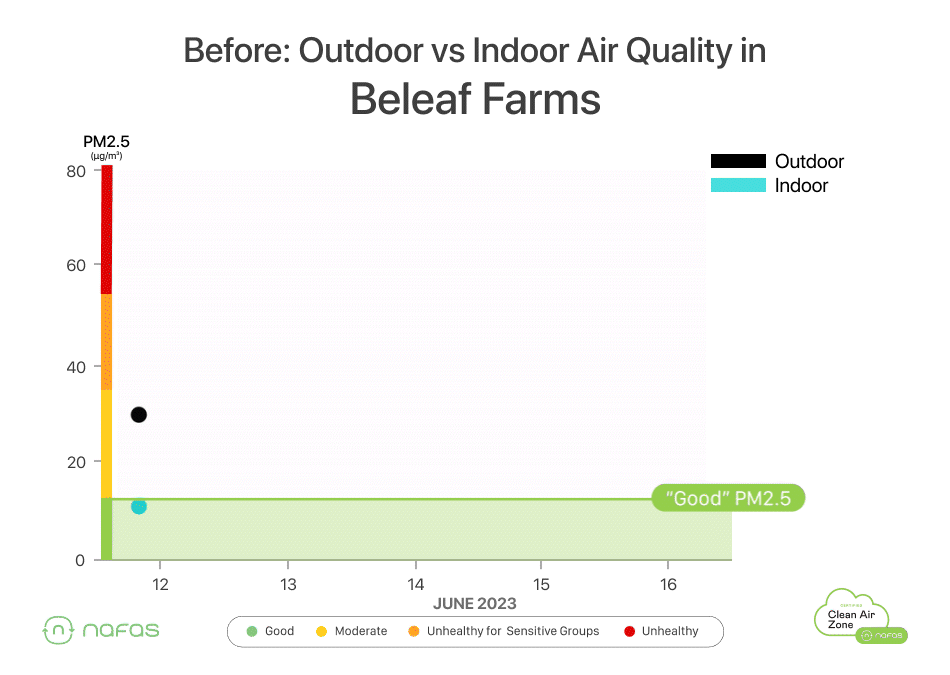
Based on June 2023 monitoring results, air quality data inside the Beleaf Farms office frequently showed spikes in high pollution throughout the week. At certain times, PM2.5 levels soared almost to outdoor conditions.
Field survey results indicated spikes in PM2.5 pollution inside the office, reaching 45 µg/m³, or nearly 3 times the WHO-recommended limit of 15 µg/m³!
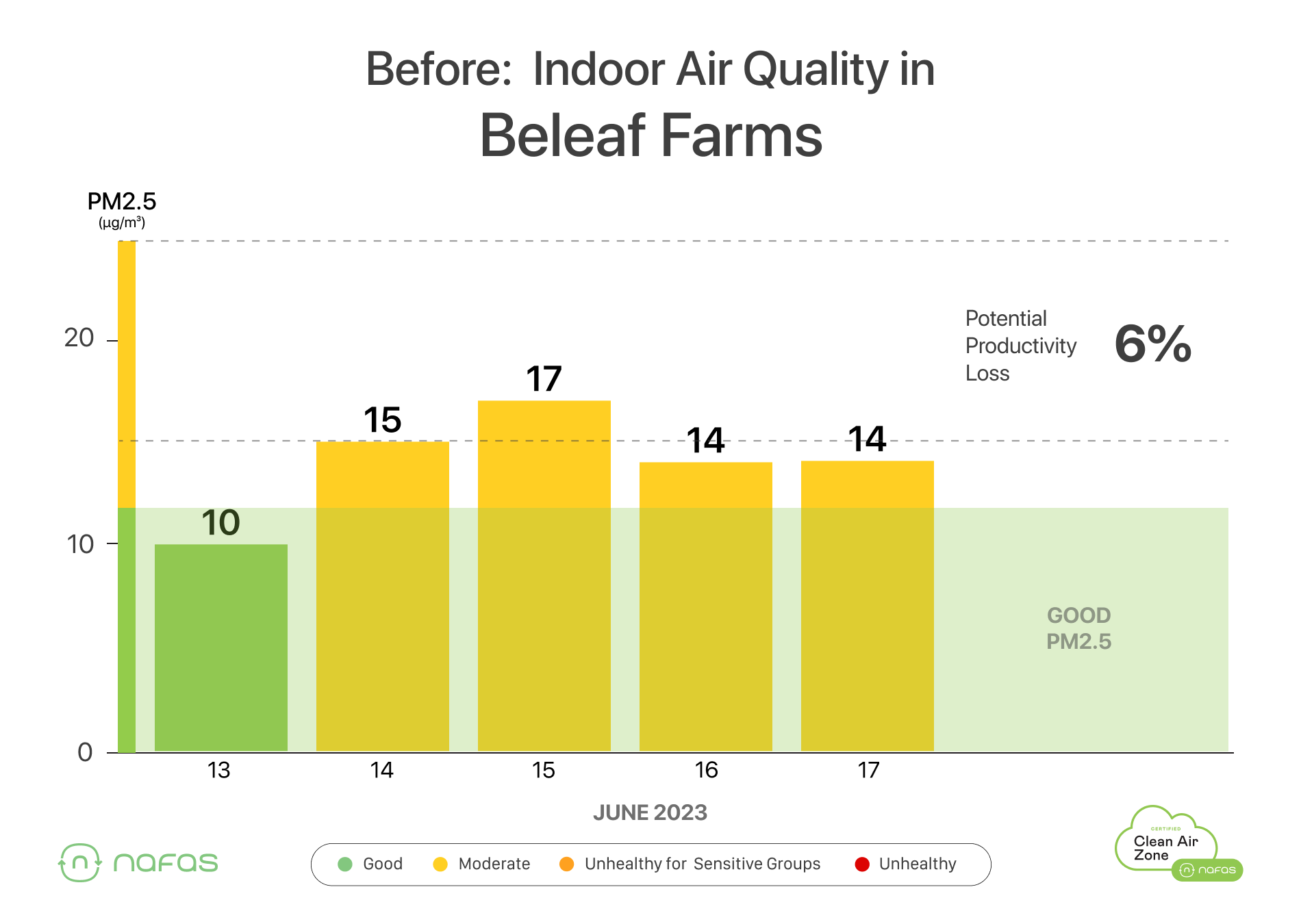
The office building's design was inadequate for filtering outdoor air pollution and maintaining healthy air in workspaces. This condition indicates an immediate need to add air purification systems for a healthier environment for employees.
Solution: Transforming Beleaf Farms into a Clean Air Zone
To improve indoor air quality in buildings in highly polluted cities like Jakarta, Nafas has developed the Clean Air Zone system. This ecosystem has been comprehensively designed to keep indoor air quality healthy throughout operational hours.
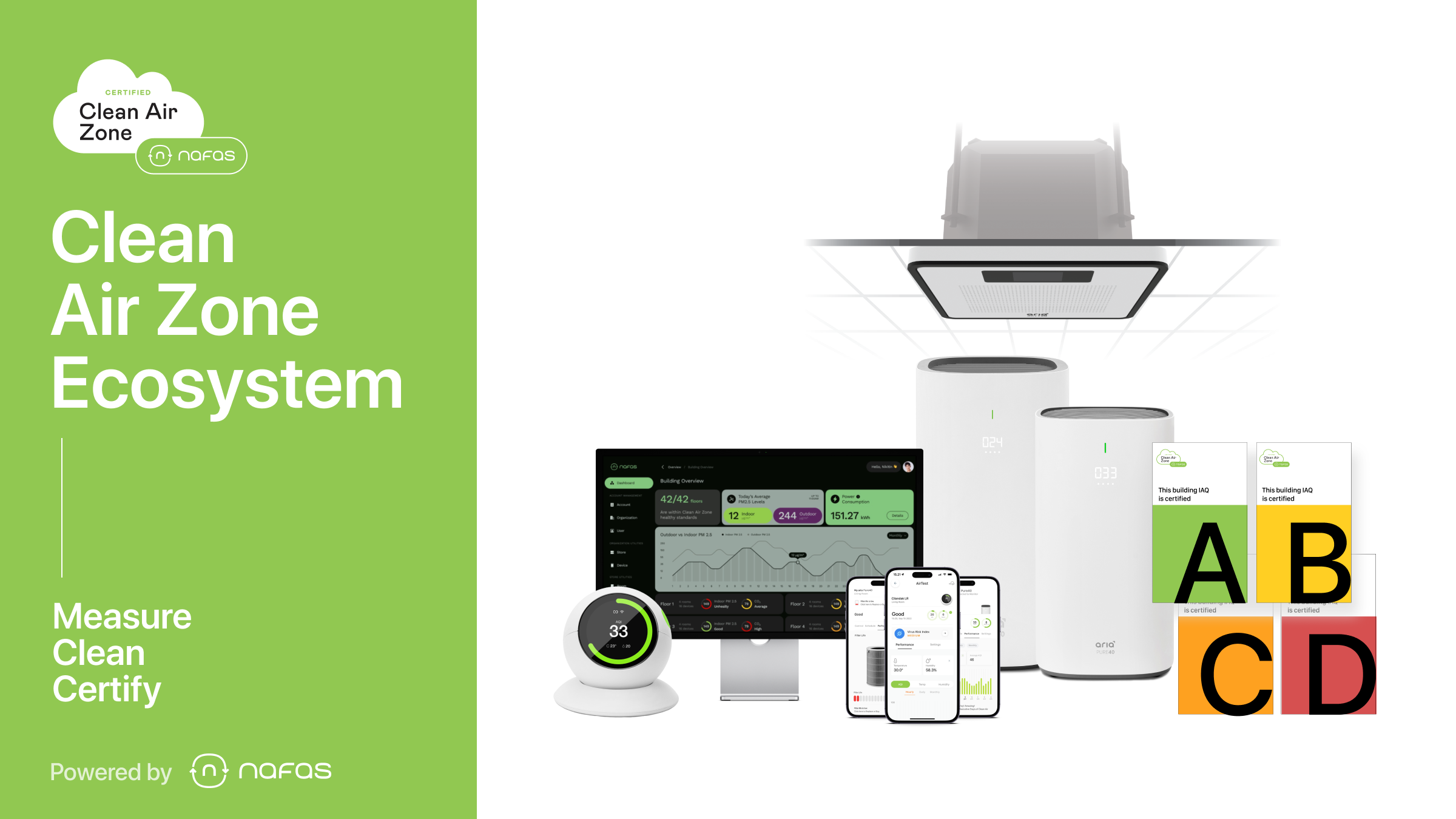
This can be achieved through an integrated automatic system, including accurate air quality monitoring, effective air filtration techniques, robust certification standards, and data-driven programs involving relevant parties. Beleaf Farms' office transformed into a Clean Air Zone.
Result: Pollution at Beleaf Farms Significantly Reduced
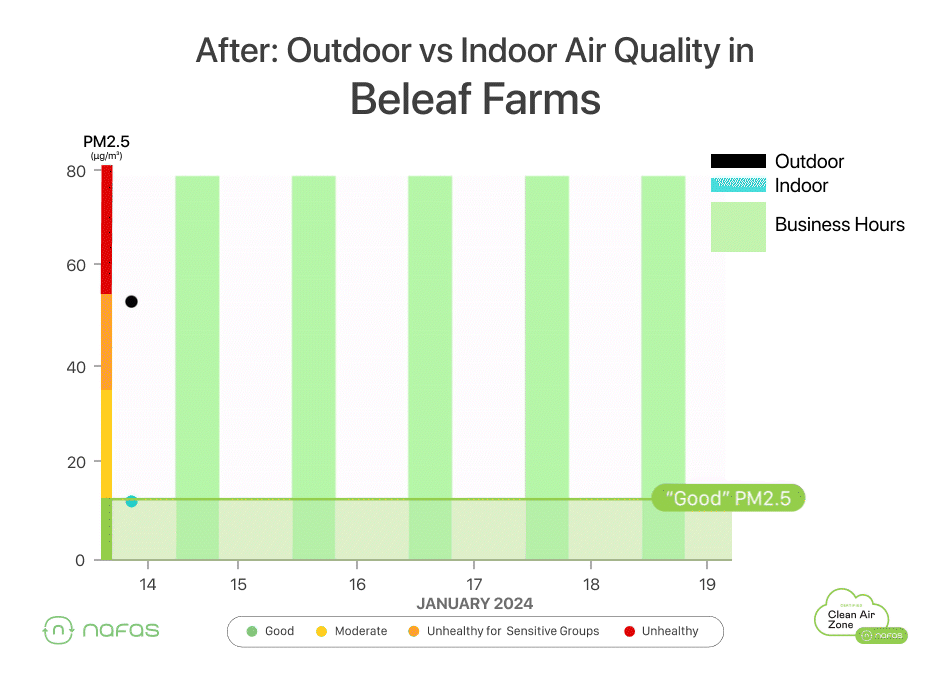
Data from January 2024 shows that the integrated automatic Clean Air Zone ecosystem implemented in the Beleaf Farms office has significantly reduced indoor air pollution levels at the workplace. This collaborative initiative has yielded tangible results, creating a healthy and comfortable working environment during office hours.
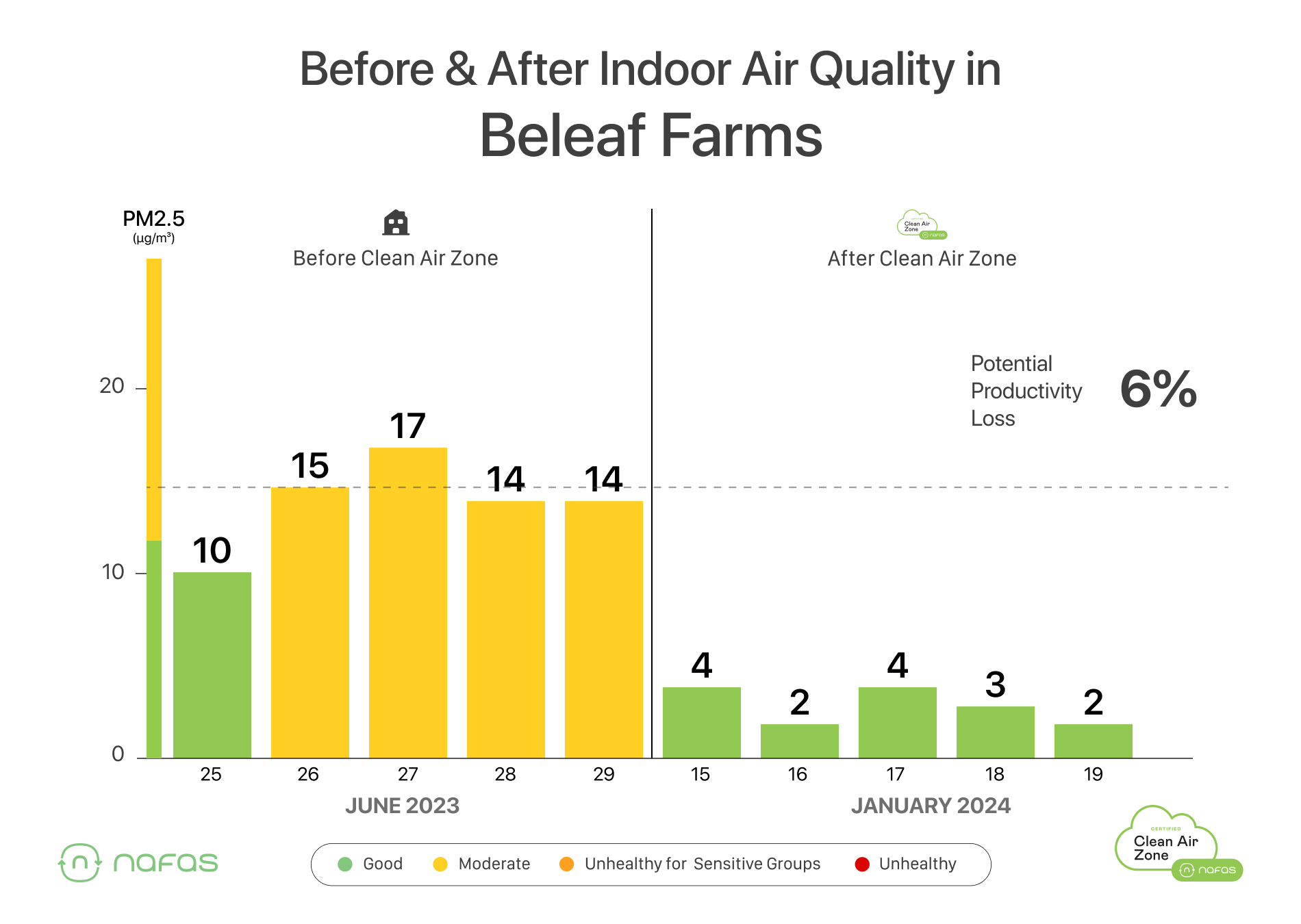
As a result, air quality at Beleaf Farms has increased by 78% cleaner after becoming a Clean Air Zone! Now, everyone consistently breathes clean and healthy air during work hours.
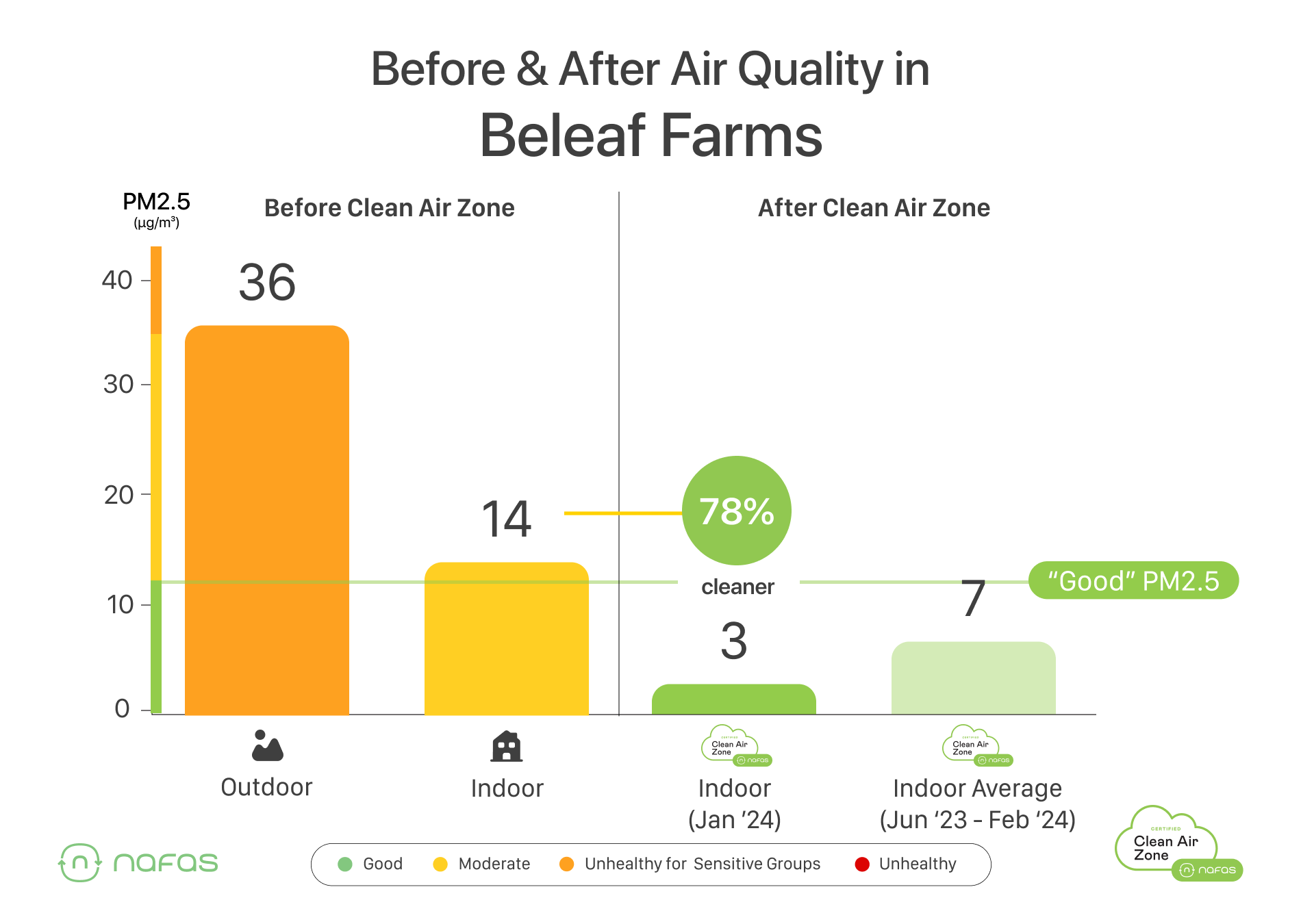
Monthly Air Quality Reports
Through the data-driven Clean Air Zone service, Beleaf Farms will receive monthly reports containing air quality metrics for the previous month. Management can share this information with staff and other stakeholders to promote transparency in workplace health conditions.
Below is an illustration of the report that the office will receive monthly:

Becoming a Clean Air Zone is So Easy
Interested in ensuring healthy air quality in your office, gym, school, or home at all times? Feel free to contact us at [email protected] or click the link below. Let's join our mission to make clean air the standard in our offices!
